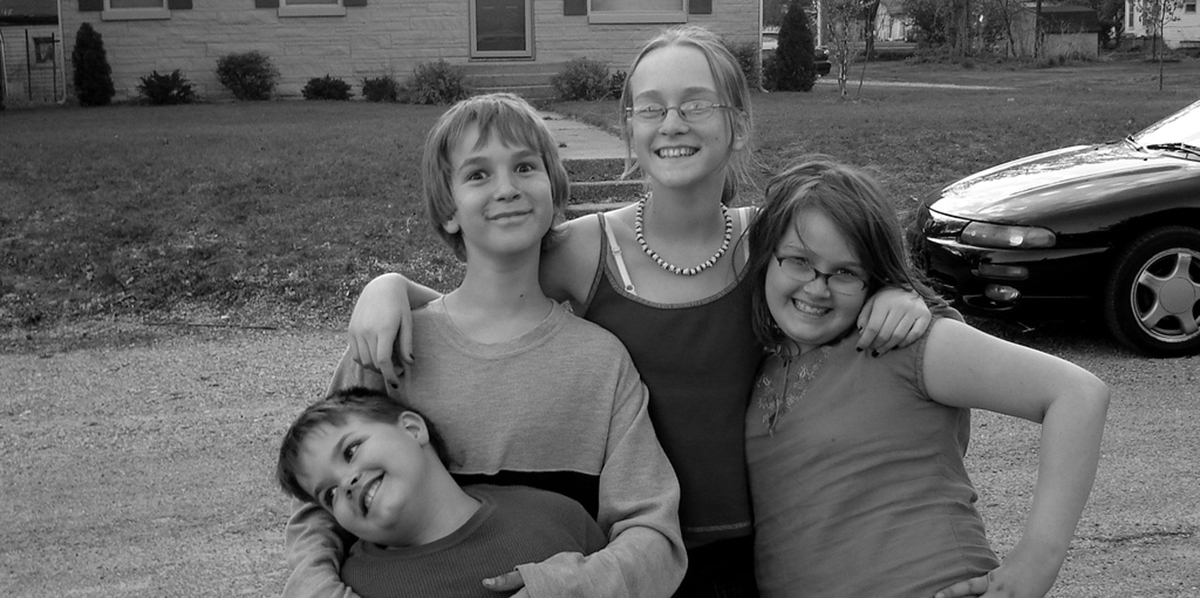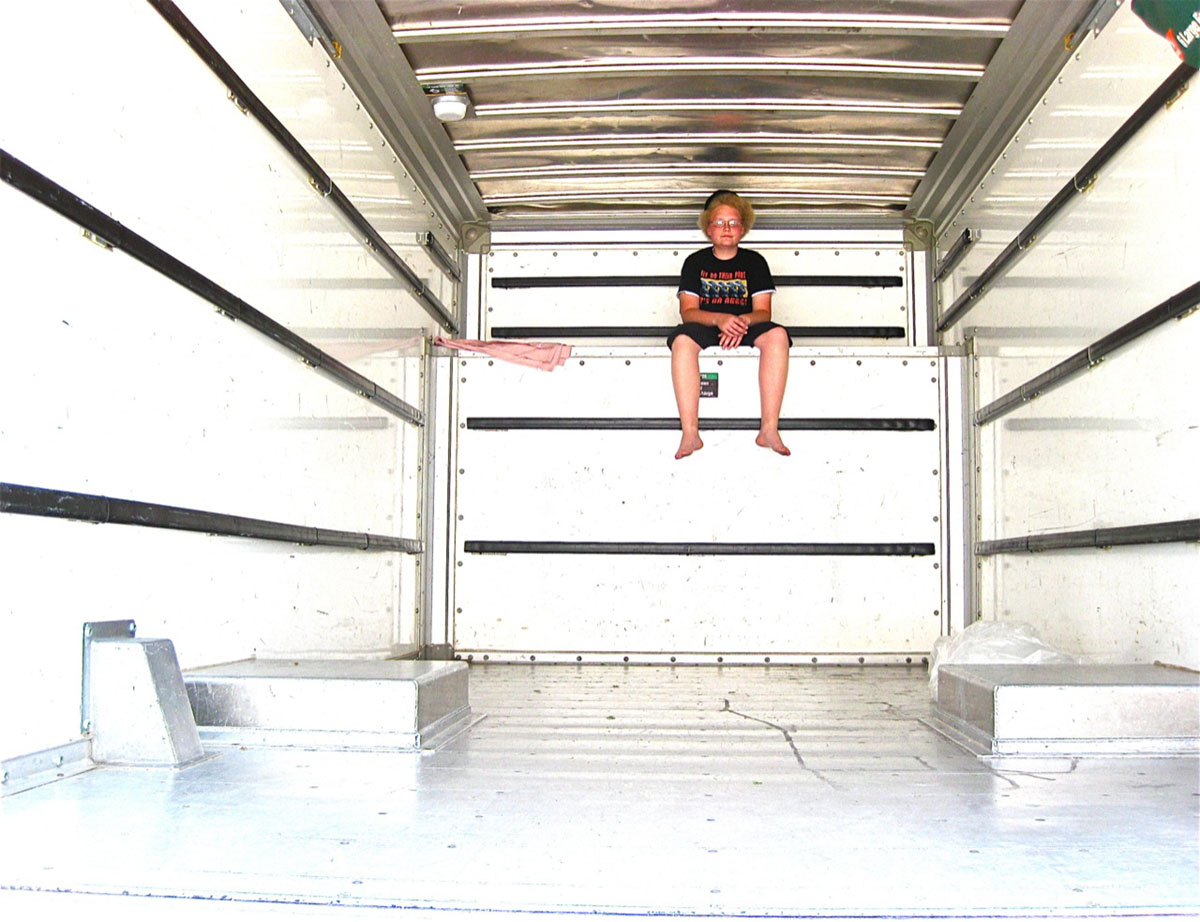Moving house is one of the most stressful life experiences adults encounter — along with divorce, job loss, the death of a loved one, and serious illness. Having moved house more than a few times myself, including internationally, I relate. There's the financial worries, the bureaucracy, the required organizational skills... but more than that, there's the fact that moving house represents, in a very real sense, the end of an era and a diving into the unknown.
Adults who've moved around quite a bit, and over long distances, know the drill. They know that leaving a familiar life behind is hard, that people always say they'll stay in touch but rarely do, that a new normal will gradually arise, and that new treasured spots and routines will be found with time, along with new friends, new jobs, and hopefully the newfound sense that this new place, too, is "home". Even so, moving remains stressful.
Helping Well-Settled Kids Move
If you've never moved since becoming a parent, so your upcoming move will be the first time your children have this experience, but you are also planning for this move to be the first and final in a long time, your challenge is different from the challenge families who move house often face.

Regardless of your children's ages, the following tips can apply:
- If possible, and if you think this will work well for your family's way of life and for your children, involve your kids in the process of choosing your new home. You can do this by viewing homes together and making everyone part of the decision-making process, but also, if it is more feasible, by allowing your children to voice the things they'd most like to see included in their new home environment, such as a yard, or a new school within walking distance. It can also, crucially, include allowing your kids to have as much control as possible over what their rooms will look like.
- Give your children time to say goodbye to their old neighborhood, home, and life.
- Moving house can be a grieving process. Acknowledge this and adjust your expectations of your children's behavior accordingly. Being sad is OK, and it doesn't mean that they won't grow to love their new home.
- Include your children in the process of moving — packing, unpacking, getting to know their new neighborhood, researching extracurricular activities, and painting are all activities children can help with.
Toddlers and preschoolers can benefit if you read story books about moving to them, and discuss what the new home and neighborhood will be like. They will appreciate having their bedrooms look similar to the ones they left behind, and returning to a routine that resembles the one they are used to.
Elementary-aged children's fears and hopes are most likely to be related to leaving their school friends behind, and finding a place within their new schools. Documenting their academic successes and struggles will help their new teachers learn more about them. On the whole, however, elementary-aged kids are quite open to moves and will handle them well after initial hurdles.
READ Another Kind Of Domestic Violence: Signs Of Emotional Abuse In Women
For teens, who are in the middle of their existential, identity-exploring phase, moves are likely to be a lot harder. Be honest with them, make sure to listen to their feelings and answer their questions, and help them through the hard initial period of settling in by being patient.
When Frequent Moves Are Part Of Your Lifestyle
Does your family move frequently, because you are a military family for instance? A large study of American adults who moved often during childhood demonstrates that moving house frequently during childhood certainly has an impact on personal development. The more a person has moved around during childhood, the more likely they are to report that they are unsatisfied with life and the more their emotional wellbeing was impacted. Likewise, frequent movers had fewer good-quality social relationships on the whole, the study found.
Moving often is, unfortunately when you look at these study results, simply a part of life for some families; business as usual, if you like. When putting deep roots down in any particular location is impossible, the impact of family relationships becomes that much bigger. By focusing on a stable home life regardless of where you happen to be located at any given time, you can strive to create a "family is where the home is", rather than a "home is where the heart is" attitude.

I can say, from personal experience, that moving gets easier each time. While being multicultural and moving frequently, including internationally, as a child and adult has certainly shaped me, I can't say that it impacted me adversely. With a positive mindset, each move becomes a new adventure, a new opportunity to meet people from all walks of life. Rather than "home" being nowhere, every place becomes "home".
This is, I assume, the attitude parents raising children who will move frequently throughout their childhoods would like to instill in them. While you can't, actually, determine how your kids will feel about being part of a family who moves around a lot, certain steps can help create continuity:
- Take pictures of every home you live in, and every neighborhood that goes along with it.
- During your first few months in a new place, explore the whole neighborhood as much as possible, and find a new and comforting routine.
- Study the history and customs of every new place you move to, in an anthropological research kind of way.
- Encourage your kids to connect with other frequent movers, something that will help them make sense of their experience as well as helping them feel normal.
- Give your children the freedom to decorate their rooms as they wish, perhaps adding a keep sake from every place they have lived in.
- Set up certain family routines you can practice anywhere — board game Thursday nights, Friday film nights, or "try a new local restaurant" first day of the month events, for example.
READ How To Help A Depressed Person Who Doesn't Want Help
Moving frequently and to many different places, often right across the globe, is certainly a different life. Does it have to be a lacking life, one in which a home-shaped hole in the heart is a prominent feature, though? No, not at all. Ultimately, as a parent, the best you can do is model a genuinely positive attitude that still leaves space for the sadness of leaving a place you loved behind.
- Photo courtesy of danielnguyen: www.flickr.com/photos/danielnguyen/133619189/
- Photo courtesy of danielnguyen: www.flickr.com/photos/danielnguyen/133619189/
- Photo courtesy of danielnguyen: www.flickr.com/photos/danielnguyen/133619189/
- Photo courtesy of CJSorg: www.flickr.com/photos/cjsorg/2543594718/


Your thoughts on this